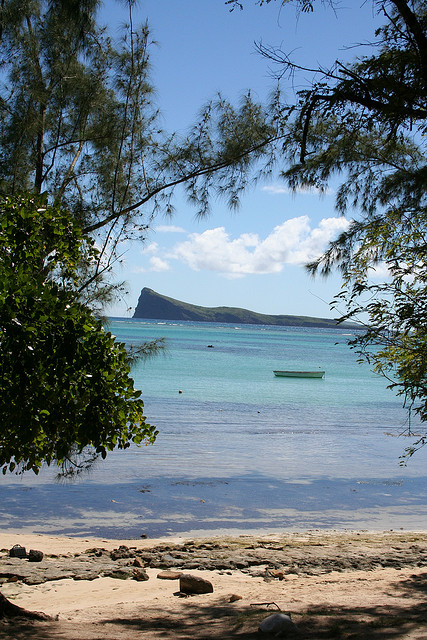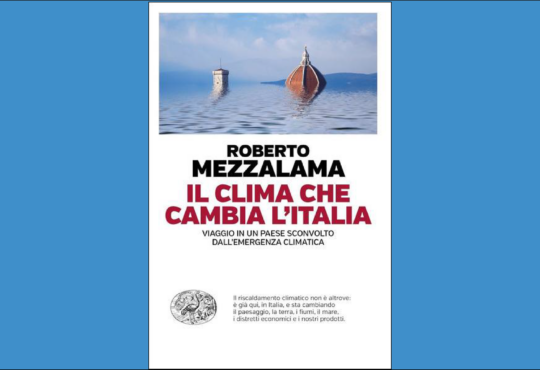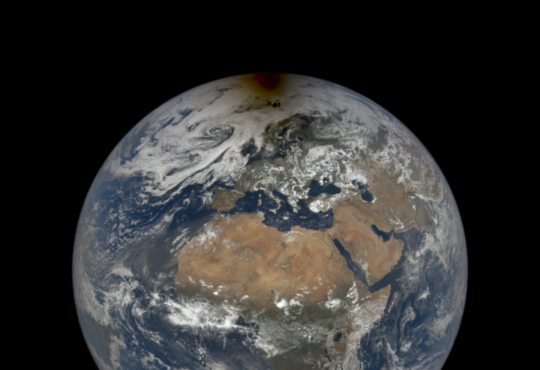 IL PARCO DELLE BUFALE – Da alcuni mesi la custode cerca di partecipare alla Fifth International Conference on Climate Change e di trascorrere alcuni giorni in un ambiente ameno, frequentando i massimi esperti mondiali. Le serve solo un piccolo aiuto.
IL PARCO DELLE BUFALE – Da alcuni mesi la custode cerca di partecipare alla Fifth International Conference on Climate Change e di trascorrere alcuni giorni in un ambiente ameno, frequentando i massimi esperti mondiali. Le serve solo un piccolo aiuto.
In febbraio la custode era incoraggiata a registrarsi senza perder tempo, mancava un mese, e a riassumere la propria ricerca su uno dei temi affrontati nelle varie sezioni (vedi elenco in nota 1). Tuttavia se non fossero stati di suo gradimento, era libera di suggerirne altri all’organizzatore, dott. Alex Cross@aol.co.uk. Molto gentile, il dott. Cross le precisava che
Un numero limitato di Borse Premio per Accesso degli Studiosi verranno assegnati ai Delegati Partecipanti a Pagamento che assistono alla conferenza, per coprire diaria, biglietto aereo e assicurazione.
A fine marzo la custode aveva già altri impegni. Per fortuna domenica le è arrivata una mail identica del dott. John Norris@aol.co.uk: la stessa conferenza si svolge anche dal 26 al 30 giugno e costa sempre 300 sterline. Purtroppo, da domenica sera, il sito della conferenza non è più accessibile per “account sospeso“. Nel caso la sospensione fosse definitiva, la custode ripiegherebbe volentieri su quella di Port-Louis, Mauritius, il 18 e 19 luglio.
Le mancano sui quattro/cinque mila dollari per l’iscrizione, il biglietto aereo, il vitto e l’alloggio, ma se i lettori glieli anticipano, li rimborserà al suo rientro. Le assegneranno di sicuro la Borsa Premio, si è scritta un curriculum da far invidia al “prof.” Cardone.
Crediti immagine: Selene Weijenberg, Flickr
Nota 1.
L’elenco è più dettagliato del solito, quasi professionale:
-
Paleoclimatology: the earth’s climate in a long view
-
Climate change today: examining the data
-
Ice cap reduction and glacial melt
-
Sea level change
-
Floods, drought, forest fires, hurricanes and other sporadic events
-
Albedo or measuring the earth’s reflectiveness
-
Meteorology and climate informatics
-
Equilibria and disequilibria: change processes and countervailing tendencies
-
Climate measurement processes, methodologies and technologies
-
Reading complex, dynamic and unstable systems
-
Developing local and global climate models
-
Change scenarios: slow, rapid, abrupt or episodic
Theme 2: Assessing Impacts in Divergent Ecosystems
What are the impacts of climate change on natural environments?
- Ocean currents and el Niño
- Riverine ecosystem impacts
- Mountain ecosystem impacts
- Coastal ecosystem impacts
- Marine ecosystem impacts
- Forest and grassland ecosystem impacts
- Impacts on wilderness and protected areas
- Impacts on specific biomes
- Impacts on biodiversity, potential extinctions
- Hardiness zone migration
- Regional variations: temperature and rainfall
Theme 3: Human Impacts and Impacts on Humans
What evidence is there that human activity has contributed to climate change, and what are the impacts of climate change on human life?
- Anthropogenic factors in climate change: determining the relative contribution of natural and human causes
- Impacts of carbon dioxide and other greenhouse gases
- Land use patterns, agriculture and livestock husbandry and deforestation as factors in climate change
- Impacts on humans: agriculture, fish stocks, food supply, health
- Human settlements and sea level rise
- Impacts on humans: water resources, desertification
- Impacts on humans of intense weather events, natural disasters and ecological surprises
- Impacts of climate change in the developing world
Theme 4: Technical, Political and Social Responses
How do scientists, technologies, policy makers and community members respond to climate change?
-
Environmental policies in response to climate change
-
Controversy and denial: politics, the media and scientists with dissenting views
-
The international politics of climate change
-
The past, present and future of international agreements
-
Education and awareness for management of global climate change
-
Protected areas and preservation of biodiversity: ‘corridoring’ and other strategies
-
Strategies for sustainability
-
Human adaptive strategies
-
Technologies of mitigation: carbon dioxide sequestration, solar shades and other processes
-
Alternative and renewable energy sources: technologies, policies and strategies
-
Carbon taxes, offsets and trading
-
Emission standards
-
Climate ethics and the precautionary principle
-
Eco-development, eco-efficiency
-
Music, Climate Change, Environment and Art





